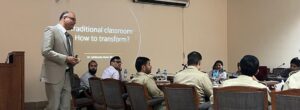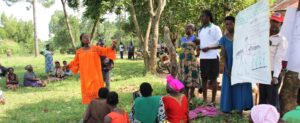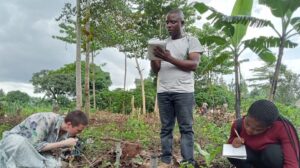
The future of scientific publishing must be bolder – and has to include the Global South
This week, the Royal Society convened global leaders in scientific publishing in London to explore the current landscape, anticipate future directions, and consider disruptions likely to shape the next 15 years. The event highlighted key challenges and showcased many existing solutions, but we need to think bigger. As a community committed to a more effective research publishing system, we should focus on two critical needs:
- Engaging beyond the scholarly communications community
- Adopting a truly global perspective by focusing on Global South perspectives and international scientific cooperation.
Agreement on some parts of the problem
There was broad consensus amongst speakers and participants that journal articles are trying to do too many things and therefore do quite a lot of these things badly. Journal articles are simultaneously vehicles for research dissemination, evaluation, and career advancement. Many participants supported decoupling research dissemination from evaluation, with preprints and responsible research assessment models—such as those promoted by DORA—offering viable paths forward.
The link between academic incentives and systemic issues—such as literature overload, research fraud, and the prestige economy—was acknowledged. However, more attention is needed on why institutions and funders have been slow to act, and how these challenges are amplified in the Global South. “Publish or perish” is an even greater barrier for researchers already negotiating a global knowledge system marked by deep inequities.
The high cost of publishing was another shared concern. Several participants emphasized the potential to redirect the vast amount of money being spent on the current system towards more affordable, community-driven publishing infrastructures e.g., Diamond Open Access. We have much to learn from the Global South, especially Latin America which has led developments of scholarly-run not-for-profit Open Access platforms.
Beyond journals and articles
The event raised important questions about whether journals remain the most effective unit for organising scientific knowledge. Originally intended for curation, journals no longer serve this function in a digital age where readers rarely discover content by journal title. Digital tools already enable us to search and filter relevant research and highlight connections between research outputs and researchers e.g., Crossref, ORCID.
Questions were also raised about whether the research article remains the best format for dissemination. Alternatives such as modular publishing (e.g., Octopus) and recognition of diverse outputs (e.g., software, protocols) were explored. However, the entrenched narrative structure of the article continues to shape how researchers conceptualize and present their work. How would research be done differently if success were measured by impact beyond academia, rather than the number of articles produced?
Whose publishing system?
The conversation was largely framed around the Global North, assuming well-funded institutions and access to read-and-publish deals. This overlooks the many researchers and institutions already excluded from such arrangements and operating on much more limited budgets. International perspectives came from SciELO and AJOL, but more needs to be done to ensure the lessons from publishing in the Global South inform future visions for scientific publishing.
Moreover, the broader issue of public trust in science—and the accessibility of research for non-academic users—must be central to the conversation.
Scientific communication as a global public good
Funders such as Wellcome and Open Access advocates called for treating scholarly communication as essential infrastructure—a global public good requiring collective investment. To advance this vision we must move beyond incremental improvements to the current system and invest in existing Open infrastructures and communities that already deliver value.
From INASP’s perspective, two key elements should inform the way forward:
- Policy engagement beyond academia: supportive policy environments are crucial for change. As Professor Tickell noted part of the impetus behind the Finch report, which recommended making publicly funded research in the UK Open Access in 2012, came from a UK science minister realising he could not access the research his department funded. This must become a public policy issue, not just an academic problem.
- A global approach: given the international nature of research and the global nature of the challenges we face, we need to focus on the role of global scientific bodies (e.g., ISC, GRC) and multilateral spaces (e.g., UNESCO, G20, G7). Reforming the publishing system requires inclusive global cooperation.
The Global South offers many alternative publishing models, often overshadowed by the dominance of a prestige publishing economy. To create a better global research publishing system, we must bridge the gap between awareness and action—connecting existing solutions with policy and science diplomacy and ensuring the perspectives of researchers and institutions in the Global South are central to the conversation.
Listening to the ambitions – and constraints – of a new generation is a good place to start (such as the members of our Rising Scholars community). And at the policy level, we need more effective science diplomacy to centre research publishing reform as a critical global issue.

 Previous Post
Previous Post Next Post
Next Post


